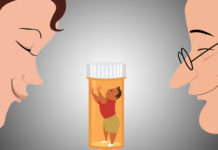The Surprising Mental Health Benefits of Volunteering
A program offers psychotherapy in exchange for voluntary service in the community. But the act of volunteering itself can have mental health benefits of its own.
Access Denied: Victims of Prescribed Harm Are Abandoned by Psychiatry
Harmed patients are frequently unable to control the narrative of their own treatment and are subject to gaslighting, dangerous medical advice, and termination.
My 7 Years of Detention Hell
The court found me “not guilty by reason of insanity” and sentenced me to a 30-day evaluation at a psych facility. A crisis had been averted, and my life could return to normal... oh, how far from the truth that idea was.
Mental Health Survival Kit, Chapter 2: Is Psychiatry Evidence Based? (Part 7)
Many patients end up on terribly harmful drug cocktails they might never escape from. Although it’s hard to believe, it’s getting worse.
On Being Forced Out in the Clinical Psychology Field
I wondered how many others have experienced coercion, abuse, and have had their lived experiences of mental illness used as weapons against them by mental health professionals?
Nutrition and Mental Health: An Interview with Julia Rucklidge, Ph.D.
Dr. Rucklidge talks about the emerging field of Nutritional Psychiatry, which looks at the relationship between nutrition and brain health and how it may affect children’s moods and behavior.
How I Became My Own Psychiatrist
I now am more conversant with the latest literature on the medications I take than my prescriber is. While I consider his opinion and clinical judgment, I no longer accept every word as the Gospel truth.
How Therapists Can Help With Psychiatric Drug Withdrawal: An Interview With Anne Guy
MIA's Richard Sears interviews psychotherapist Anne Guy about working with clients withdrawing from psychiatric drugs.
Philosophy & Madness: A Discussion with Wouter Kusters
Wouter underwent two experiences of what is commonly called "psychosis," which he explores and explains through the lenses of philosophy, spirituality, and mysticism.
Stimulant Prescribing Patterns for ADHD Not Impacted by Scientific Evidence
The article suggests that research challenging the evidence for ADHD drugs does not lead to changes without public campaigns.
Mental Health Survival Kit, Chapter 2: Is Psychiatry Evidence Based? (Part 6)
Schools and hospitals have become dangerous places for children and adolescents. They should stimulate children, not pacify them with speed on prescription.
Lack of Guidance Available for Discontinuing Psychiatric Drugs
A new article discusses the lack of research dedicated to discontinuing psychiatric drugs and reviews existing strategies.
Interview: Is Forced Treatment Deterring Youth from Seeking Mental Health Care?
Researcher Nev Jones, Ph.D., talks about her study of youth hospitalized against their will, and how their experiences affected their attitudes about mental health treatment and providers.
Mental Health at the End of the World
The abolition of individualism has got to be at the center of any “alternative” mental-health movement/theory/philosophy. Otherwise, it’s not “alternative.”
Bearing False Witness: Childhood Psychiatry, Trauma, and Memory
Through journaling, I realized that my lifelong confusion surrounding my memories of traumatic events was the direct result of the psychiatric labels and drugs I swallowed alongside years of parental abuse.
Questions About Forced ECT: A Letter for Minnesota Governor Tim Walz
If Minnesota is going to mandate ECT for people like Charles Helmer, there are at least 20 questions they need to consider before proceeding.
Mental Health Survival Kit, Chapter 2: Is Psychiatry Evidence Based? (Part 5)
The psychiatrists have fought really hard to hide the terrible truth that depression pills double the risk of suicide, not only in children but also in adults.
Overprescribing Madness
Slick salesmanship, dishonest and incompetent medical practice (overlooked by timid regulators) and cultural, commercial, and political drivers now see Australians hooked on a cycle of over-diagnosis and over-medication.
Psycho-Bizarreness Theory: A Rational, Anti-Psychiatric Theory of Madness
Contrary to the traditional view, Psycho-Bizarreness Theory sees madness as a rational coping mechanism which individuals adopt out of expediency.
Someone I Used to Know
When I sit in Billie’s office, I am still 13 years old, bitter anger saturating my body. I am 23, sobbing that I cannot do this anymore. I am 24, celebrating my first year of college. I am all of these people and none of these people.
What Does Our Species Require for a Healthy Life? An Interview with Peter Sterling
In his book "What is Health," Peter Sterling asks this provocative question: What does our species require for a healthy life? And can we achieve this with drugs?
Mental Health Survival Kit, Chapter 2: Is Psychiatry Evidence Based? (Part 4)
It requires extraordinary mental gymnastics by psychiatrists to conclude that neuroleptics, which cause obesity, metabolic dysfunction, diabetes, tardive dyskinesia, lethal cardiac arrhythmias, and so on, protect against death.
An American History of Addiction, Part 6: The Reagan Reaction
Kevin Gallagher addresses the Reagan era and the "crack" epidemic of the 1980s in this continuing series about the USA and addiction.
Assault and Exploitation: My Peer Worker Experience
The intensity of demand faced in the acute ward is exhausting. No one has a clue what I’m supposed to be doing, least of all me.
Beyond Benzos: Jordan B. Peterson’s Trip to Hell and Back
I am thankful "Beyond Order" exists; if only because it serves as a cautionary tale for anyone looking to modify their mood using psychiatry’s plethora of pills.

































